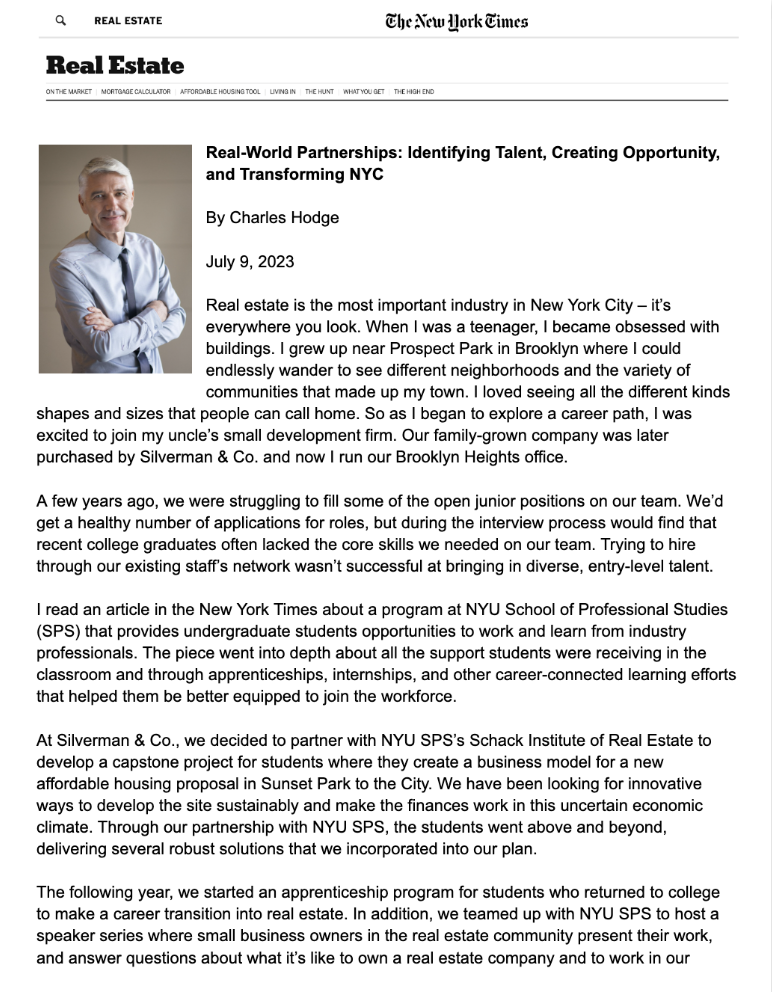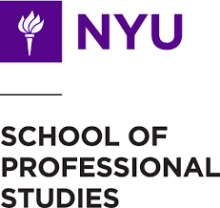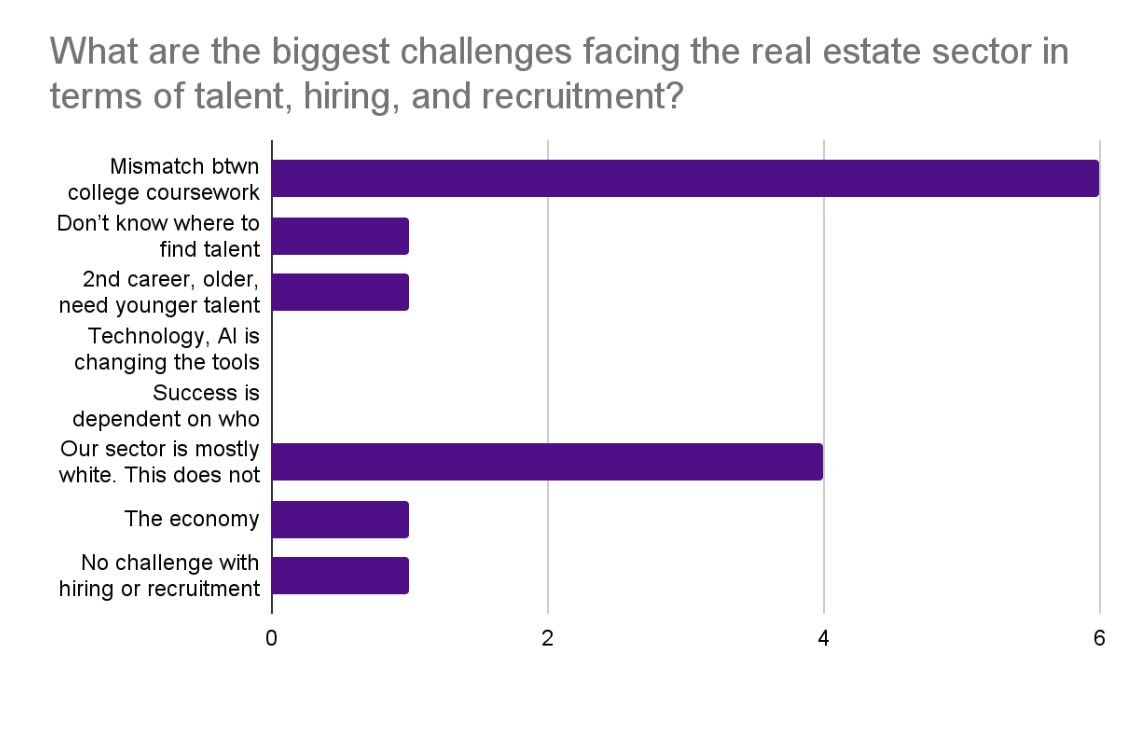
Motivate industry professionals to contribute their expertise to applied learning opportunities for college students at NYU
Narrative
LandscapeMapping the Narrative Landscape
The project team learned the conversation about work-based learning was being led by community colleges, which highlighted how high school students and employers benefit. However, the option to “learn and earn” after college was getting little attention.
The project team learned the conversation about work-based learning was being led by community colleges, which highlighted how high school students and employers benefit. However, the option to “learn and earn” after college was getting little attention.
Audience
MindsetUnderstanding Audience Mindset
University faculty already understand the value of work-based learning. Industry professionals, however, may not. The project team shifted its target audience and its research goal: to convey that industry professionals have a role in preparing students for their careers.
University faculty already understand the value of work-based learning. Industry professionals, however, may not. The project team shifted its target audience and its research goal: to convey that industry professionals have a role in preparing students for their careers.
PersuasionTesting Persuasive Messages
After conducting a survey of professionals working in three industries, the project team narrowed its persuasion audience to real estate professionals. They learned that real estate professionals believe real-world learning is an important part of career readiness. Especially when relating this to their own experiences of on-the-job learning, they’re ready to see the value of educational and industry partnerships.
After conducting a survey of professionals working in three industries, the project team narrowed its persuasion audience to real estate professionals. They learned that real estate professionals believe real-world learning is an important part of career readiness. Especially when relating this to their own experiences of on-the-job learning, they’re ready to see the value of educational and industry partnerships.
ActionPutting Messaging Into Action
NYU SPS will put its messaging into action following the conclusion of the Pathways Narrative Project.
NYU SPS will put its messaging into action following the conclusion of the Pathways Narrative Project.
Creating
ChangeCreating Change
Moving forward, the project team will use the insights they gained to inform a full-scale rebrand of the school as the go-to institution for in-classroom learning integrated with real-world experience.
Moving forward, the project team will use the insights they gained to inform a full-scale rebrand of the school as the go-to institution for in-classroom learning integrated with real-world experience.
Creating ChangeCreating Change
Moving forward, the project team will use the insights they gained to inform a full-scale rebrand of the school as the go-to institution for in-classroom learning integrated with real-world experience.
Moving forward, the project team will use the insights they gained to inform a full-scale rebrand of the school as the go-to institution for in-classroom learning integrated with real-world experience.
Mindset

What is the audience's mindset?
Insights
- NYU SPS faculty identify simultaneously as educators and as potential employers
- Faculty are motivated to teach for a variety of reasons
- Faculty describe real-world learning as both “applied learning” or “experiential learning” but definitions between the two terms may vary.
- Faculty believe students need “an exposure to a diversity of subjects and ideas, critical thinking skills” and “practical skills and knowledge to land a good paying job”
- Faculty believe that a lack of “soft skills,” and students’ own expectations of adulthood are the biggest challenges facing new graduates.
- Faculty believe the education system is failing students
- Most faculty see students as adults, but perceptions of the role of parents differ.
- Faculty believe their role is to prepare students for the real world.
- Faculty value real-world learning and describe it as both “applied learning” or “experiential learning” but definitions between the two terms may vary.
- Language used to describe the desired outcome of college are understood in different ways.
For Example:
Faculty believe students need “an exposure to a diversity of subjects and ideas, critical thinking skills” and “practical skills and knowledge to land a good paying job”
For Example:
Language used to describe the desired outcome of college are understood in different ways.
Persuasion

What messages are most persuasive to the target audience?
Narrative Framework
Connection
The real estate industry is changing quickly. In order to be prepared for the changes that lie ahead, our sector must play an active role in training the next generation of real estate professionals.
The real estate industry is changing quickly constantly evolving. In order to be prepared for the changes that lie ahead, our sector must play an active role in training the next generation of real estate professionals.
The real estate industry is constantly evolving. In order to be prepared for the changes that lie ahead, our sector must play an active role in training the next generation of real estate professionals.
Problem
Traditional higher ed isn’t effectively preparing students for working in real estate. Students aren’t ready to enter the workforce (don’t have the skills, they don’t have experience or the connections). Industry doesn’t currently have a voice, or impact/influence how higher ed prepares students for their industries and sectors.
Traditional higher-ed isn’t Colleges aren’t effectively preparing students for working in real estate. Students aren’t ready to enter the workforce (don’t have the skills, they don’t have experience or connections). Often, they have to rely on on-the-job training, which can be inconsistent and dependent on whether projects get developed or who you get paired with. Industry doesn’t currently have a voice, or impact/influence on how higher ed colleges prepare students for their industries and sectors.
Colleges aren’t effectively preparing students for working in real estate. Students aren’t ready to enter the workforce (don’t have the skills, they don’t have experience or the connections). Often, they have to rely on on-the-job training, which can be inconsistent and dependent on whether projects get developed or who you get paired with. Industry doesn’t currently have a voice, or influence how colleges prepare students for their industries and sectors.
Solution
Real-world learning partnerships between companies/industry leaders and colleges and universities help students gain the necessary experience, skills, and relationships to enter the workforce ready on day one. Higher education provides students with support, employer-required credentials, and classroom and skills training. It also provides the industry with a pipeline of diverse talent ready to enter the workforce on day one. Industry partners provide higher education with guidance on the critical skills needed to enter their fields today and students with the experience and relationships needed to launch or grow their careers.
Real-world learning partnerships between companies/industry leaders and colleges and universities help students gain the necessary experience, skills, and relationships to enter the workforce ready on day one. Higher education Colleges provide students with support, employer-required credentials, and classroom and skills training. It also provides the industry with a pipeline of diverse talent ready to enter the workforce on day one. Industry partners provide universities higher education with guidance on the critical skills needed to enter their fields today and students with the experience and relationships needed to launch or grow their careers.
Real-world learning partnerships between industry leaders and colleges help students gain the necessary experience, skills, and relationships to enter the workforce ready on day one. Colleges provide students with support, employer-required credentials, and skills training. It also provides industry with a pipeline of diverse talent ready to enter the workforce on day one. Industry partners provide universities with guidance on the critical skills needed to enter their fields today and students with the experience and relationships needed to launch or grow their careers.
Vision
Together, we’re creating an educational system that better meets the evolving needs of the industry as well as more opportunities for young people to launch or advance their careers. Through real-world learning partnerships, higher ed and industry can build the on-ramps into real estate so we can meet the needs of our economy now and in the future.
Together, we’re creating an educational system that better meets the evolving needs of the industry and creates as well as more opportunities for young people to launch or advance their careers. Through real-world learning partnerships, colleges higher ed and industry can build the on-ramps into real estate so we can meet the needs of our economy now and in the future.
Together, we’re creating an educational system that better meets the evolving needs of the industry and creates more opportunities for young people to launch or advance their careers. Through real-world learning partnerships, colleges and industry can build the on-ramps into real estate so we can meet the needs of our economy now and in the future.
Insights
- There is a mismatch between coursework and skills needed to be successful in real estate
- College is valuable but not doing enough to prepare students for work.
- Respond positively to the definition of real-world learning partnerships
- Effective messaging highlights the positive impact of partnerships on businesses.
For Example:
Effective messaging highlights the positive impact of partnerships on businesses.

For Example:
Mismatch between coursework and skills needed to be successful in real estate motivates audiences

Notes
Action

